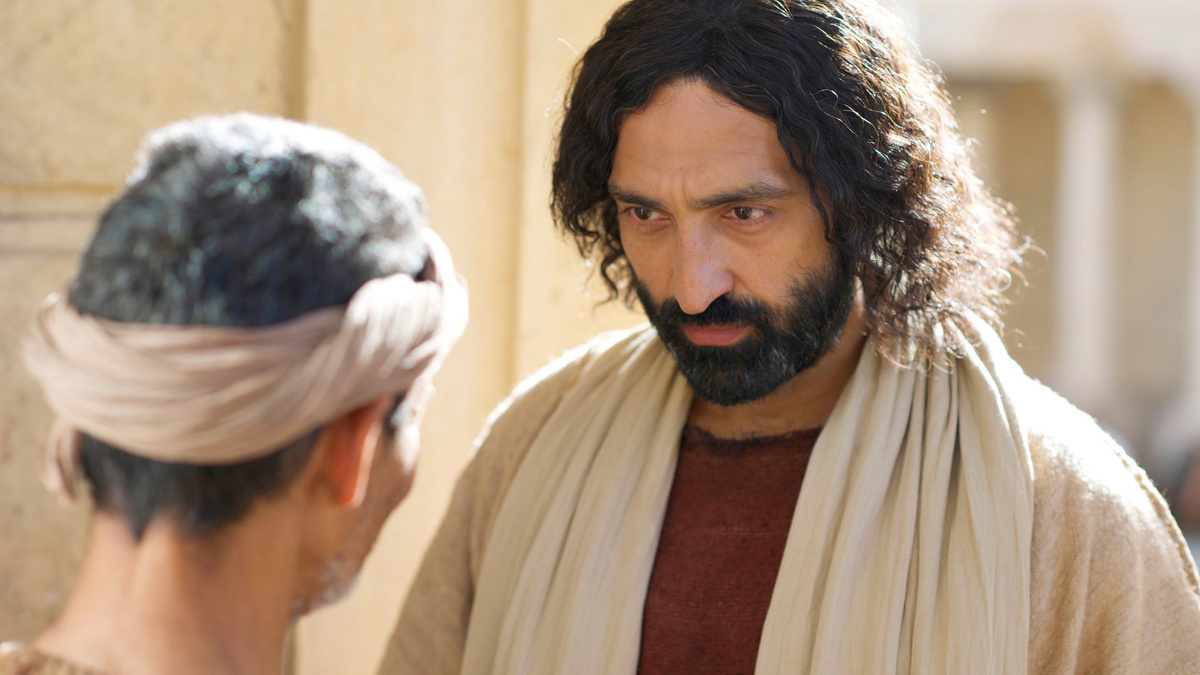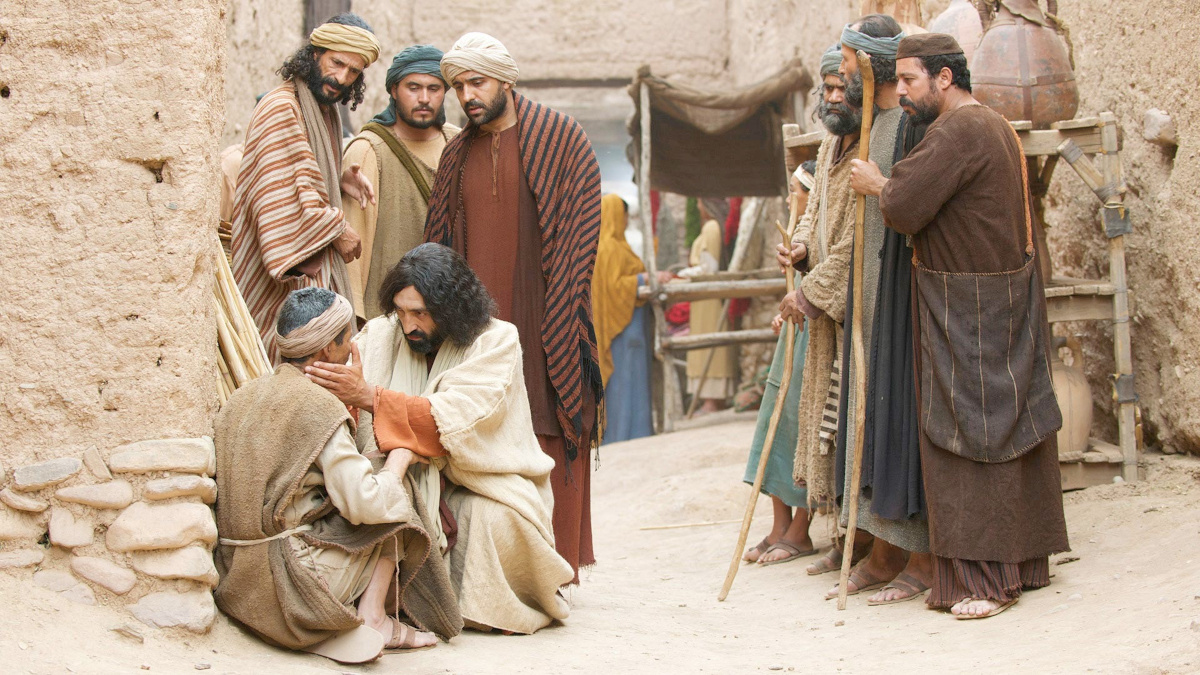The Lord always seemed to know what people needed. Some of that ability was divine insight, most certainly. However, Jesus' approached people in many ways we can also use as we seek to love and reach out to people as he did. As someone who regularly reads the gospels (Matthew, Mark, Luke, and John), I ask the Holy Spirit to open my eyes to ways the Lord approached and dealt with people. I want to value them as he did. I want to hear their hearts and feel their emotions, as he did.
One of the reasons many of us value the Gospel of John is that he covers fewer events while sharing the Lord's encounters with people in more detail. The conversational exchanges are more extended. If we are willing, we can learn to treat people as Jesus did. We can ask the Holy Spirit - our Advocate and Anointing - to lead us into a more profound understanding of Jesus' interactions with people (John 14:16, 26 and 1 John 2:20-27).
Let me share an insight I believe the Spirit led me to develop after reading John 9. For me, this is a crucial insight into how Jesus views people in contrast to how religious people can often view people. This insight helps me see why non-religious, broken, outcasts, and outsiders flocked to Jesus and were willing to listen and obey him. Let's begin by reading John 9:1-38.
Notice how this interaction with a man born blind began, then how it ended:
As [Jesus] went along, he saw a man blind from birth. His disciples asked him, "Rabbi, who sinned, this man or his parents, that he was born blind?"
(John 9:1-2)
Jesus heard that they had thrown [out the man born blind], and when he found him, he said, "Do you believe in the Son of Man?"
"Who is he, sir?" the man asked. "Tell me so that I may believe in him."
Jesus said, "You have now seen him; in fact, he is the one speaking with you."
Then the man said, "Lord, I believe," and he worshiped him.
(John 9:35-38)
A man born blind, living outside of everyday society, and viewed as a sinner, goes through the abuse and blame of religious people. Then after his interaction with Jesus, this man comes to an unshakable faith that Jesus is the promised "Son of Man," the Savior God said he would send to redeem his people. The journey to this faith centered on how religious people sometimes wrongly view people and how their ways differed from Jesus'.
First, let's look at how religious people wrongly viewed this man. Then we can come back to the way Jesus views people.

- A Religious Question:
"Rabbi, who sinned, this man or his parents, that he was born blind?"
(John 9:2)The disciples asked this question in the man's presence, insensitive to the reality that he could hear their discussion. They based their question on the religiously ugly way of blaming someone for their own physical problems. This point of view assumes that if you are good, then good things happen to you, and if you are bad, then bad things happen to you. They ignored the book of Job that blasted this often-held but grossly unfair view of reality. Even more, they devalued this man as a person created in the image of God (Genesis 1:26-27) who needed their love and mercy. As long as they viewed this man as little more than a religious question, they didn't have to engage with him as someone who needed the Lord's grace! They saw no reason to have concern for this man because they religiously categorized him as unworthy of their time and attention.
- A Label:
His neighbors and others who knew him as a blind beggar asked each other, "Isn't this the man who used to sit and beg?" Some said he was, and others said, "No, he just looks like him!"
But the beggar kept saying, "Yes, I am the same one!"
(John 9:8-9 NLT)The neighbors saw the man born blind as little more than a label: he was a beggar. They assumed they knew him and saw no need to approach him differently than their assigned label. They didn't know his story, his longings, or his heart. "He's a beggar! We see him every day. We don't have to think about him." But isn't this sinful way of viewing a person something we also easily slip into doing? Are they Republican or Democrat, thin or fat, gay or straight, young or old, tidy or messy? If we view them as a label, we don't have to view them as a person, do we? We don't have to waste our time worrying about them or helping them.
- A Problem:
Then they took the man who had been blind to the Pharisees, because it was on the Sabbath that Jesus had made the mud and healed him. The Pharisees asked the man all about it. So he told them, "He put the mud over my eyes, and when I washed it away, I could see!"
Some of the Pharisees said, "This man Jesus is not from God, for he is working on the Sabbath."
(John 9:13-16 NLT)When we view another person as a problem to be solved and put behind us, we forget their human dignity and view them as indistinguishable from the mess they made of our narrow worldview. A great example of this was the resurrection of Lazarus from the dead. Because many people were coming to faith in Jesus because of Lazarus' resurrection from the dead, people who wanted Jesus killed began to call for Lazarus' murder to keep more people from following Jesus. They rejected what they knew to be a miracle simply because it was a problem for their theology!
- A Biological Product: We can ask the Holy Spirit to lead us to the deeper truth about Jesus.
The Jewish leaders still refused to believe the man had been blind and could now see, so they called in his parents. They asked them, "Is this your son? Was he born blind? If so, how can he now see?"
His parents replied, "We know this is our son and that he was born blind, but we don't know how he can see or who healed him. Ask him. He is old enough to speak for himself."
(John 9:18-20)The parents of this man born blind were so afraid of being put out of the synagogue, Temple, and regular fellowship with their friends that they refused to stand up for their son and share his joy and his rejection by the religious leaders. Unfortunately, our world is plagued with biological DNA donors who refuse to be loving mothers and supportive fathers to their children. They are happy to have the status of having a child as long as the child is convenient, but don't ask them to invest, sacrifice, or bear the burden of a child.
If we take some time and reflect on these four false ways that religious people can view others, we can likely find ourselves guilty of one or more of these wrong approaches to people. Most of us regret having mishandled, hurt, or sinned against someone in one of these ways. So, let's repent and notice how Jesus viewed this man that was born blind and align our approach to people with the Lord's!

- Someone in whom the work of God needs to be done:
"Neither this man nor his parents sinned," said Jesus, "but this happened so that the works of God might be displayed in him. As long as it is day, we must do the works of him who sent me. Night is coming, when no one can work. While I am in the world, I am the light of the world."
(John 9:3-5)
Jesus viewed each person as someone in whom the work of God needed to be done. He also saw his role, as well as our role, to be light to those trapped in darkness (John 8:12; John 9:5; Matthew 5:14-16). God called us to follow Jesus and bless others just as Jesus was a blessing (1 Peter 3:8-9; Matthew 5:5-10; Luke 7:20-23; John 13:12-17). Peter described our role with these words:
But you are a chosen people, a royal priesthood, a holy nation, God's special possession, that you may declare the praises of him who called you out of darkness into his wonderful light. Once you were not a people, but now you are the people of God; once you had not received mercy, but now you have received mercy.
(1 Peter 2:9-10>
If we choose to live the JesuShaped life, we must approach each person we meet as Jesus did: A person in whom the work of God needs to be done! And what is that work of God that needs to be done?
Then they asked [Jesus], "What must we do to do the works God requires?"
Jesus answered, "The work of God is this: to believe in the one he has sent" (John 6:29-30).
Our approach to people must focus on helping them believe God values them and that Jesus came to serve, love, and find life in him (John 3:16-17; Romans 5:6-11). When we view people this way, we listen, care, empathize, dignify, value, and love them. Why? Because Jesus showed us this way of life and called us to follow him in living it (1 John 4:9-12).












Comments
Have thoughts on this article? Leave a comment